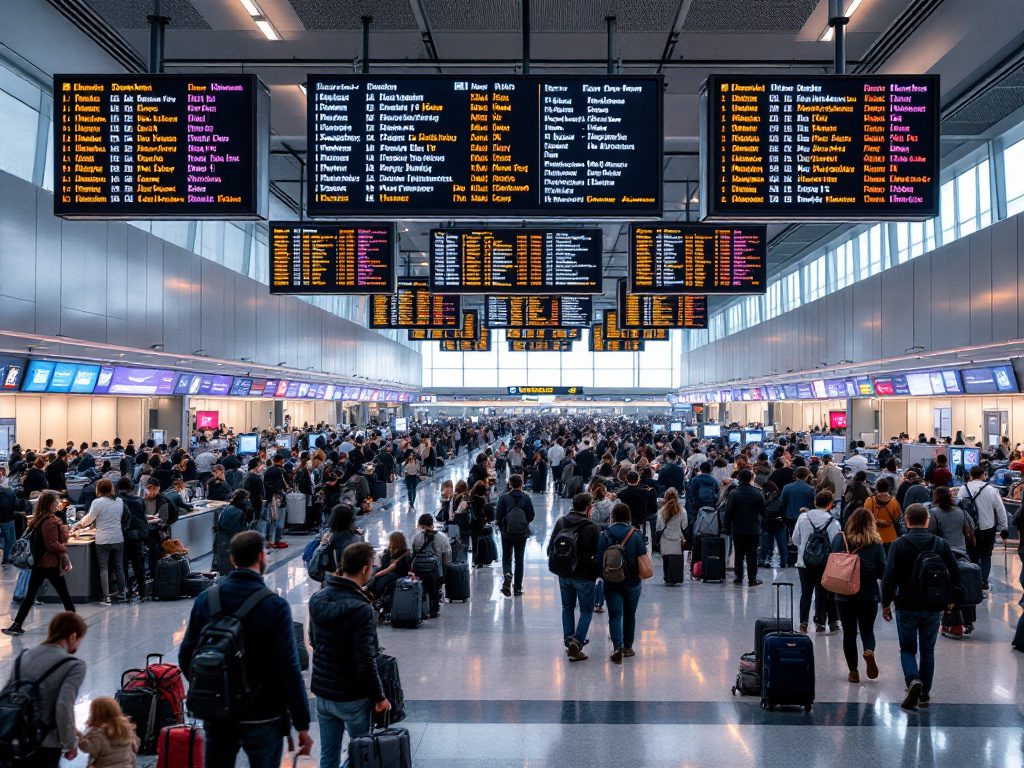Mounting Pressure: Maine Confronts the Real ID Deadline
As the May 7 deadline for federal Real ID enforcement looms, Maine stands at the crossroads of federal security policy and local infrastructural reality. At the heart of the debate are stressed airports, an anxious public, and state officials pleading for federal pragmatism. Maine’s Secretary of State Shenna Bellows, together with bipartisan legislative support, is formally urging the Department of Homeland Security (DHS) and the Transportation Security Administration (TSA) to adopt a phased-in approach to the Real ID law, which mandates compliant identification for domestic flights and entry to federal buildings.
Enacted in 2005 in the aftermath of 9/11, the Real ID Act was designed to standardize security across state-issued IDs. Yet nearly two decades and several implementation delays later, urgency among both residents and governments has waxed and waned. Only 27% of Mainers have a Real ID-compliant license, according to April data, despite a surge in last-minute applications. As Bellows told reporters, “Repeated federal delays have led to complacency—not just in Maine, but around the country.” The result: a bottleneck of last-minute applicants and airports on the verge of logistical gridlock.
The situation is especially acute in Maine’s airports, where capacity for secondary screenings is already thin. At Portland Jetport, fewer than half the travelers are believed to hold compliant ID. The specter of massive numbers being rerouted for additional screening threatens not just convenience but safety and security. Could the same federal rule designed to bolster security in reality create chaos at the security line?
Inside the Numbers: Gaps in Readiness and The Human Toll
Beyond headlines, the numbers paint a daunting picture for Maine’s air travelers. The Secretary of State’s office reports over 18,000 Real IDs issued in April alone—with the Bureau of Motor Vehicles grinding out more than 100 compliant licenses per hour. Even so, progress remains too slow to meet the May 7 mandate. Representative Lydia Crafts, chair of the Transportation Committee, acknowledges the push: “It’s not that Mainers don’t care about security. There’s just not enough time, staff, or infrastructure to get everyone compliant by the deadline.”
TSA spokesperson Patricia Mancha frames the issue around national security, emphasizing that “REAL ID is a way of verifying travelers are who they say they are when they get to the checkpoint.” The intent—to prevent bad actors from boarding flights—is broadly supported. Yet sweeping rules don’t always fit local realities. As Bellows and her colleagues have argued in a formal letter, without federal flexibility, Maine risks “missed flights, security checkpoint clogging, and an overwhelmed TSA workforce.”
Maine officials aren’t just projecting doom—they’re proposing a solution drawn from common sense and compassion. Instead of a hard cutoff, why not phase in the rule? Let travelers missing the right card proceed, but with a warning or extra scrutiny. Allow families to reunite, seniors to keep medical appointments, and workers to reach critical destinations, while the state catches up. What’s the risk in a brief window for adaptation, especially when so many were caught flat-footed by a law enacted nearly 20 years ago?
“We’re not asking for a handout—we’re asking for a transition that recognizes reality on the ground. No one benefits from travel chaos, least of all those TSA officers tasked with making our skies safer.” — Maine Secretary of State Shenna Bellows
Nationally, the issue feels less acute. The TSA boasts that 98% of Texas travelers already carry compliant ID—a testament to outreach, resources, and possibly more robust DMV staffing. Yet Maine, like many rural and lower-population states, faces unique hurdles: older populations, longer travel distances to BMV offices, and limited resources for public education campaigns. These are not failures of will, but of circumstance.
Finding Pragmatism: Progressive Lessons and Policy Pitfalls
Clashing priorities between national security imperatives and local practicalities are not new in American governance. The Real ID rollout is merely the latest example. History offers a sobering lesson: Overnight mandates seldom result in orderly transitions, and vulnerable populations pay the highest price. Think back to botched voter ID rollouts that left elderly and minority voters at the mercy of long lines and bureaucratic confusion—or the Obamacare exchanges’ chaotic first days due to an unprepared digital infrastructure.
The federal government’s refusal, so far, to grant Maine’s request is more than a matter of administrative rigidity. It reflects a recurring conservative tendency to champion one-size-fits-all solutions—regardless of collateral impact. Sure, tough-on-security politics play well on cable news, but what about the frazzled single mom unable to board a flight or the veteran stranded without proper documentation? As Harvard public policy expert Dr. Ethan Simmons notes, “Security is only as strong as the system’s weakest link—and forced bottlenecks at security checkpoints help no one. Flexibility is not a weakness, but a pragmatic strength.”
Maine’s request is hardly a plea for lawlessness. Liberal values demand commitment to public safety as well as social equity and accessibility. Issuing warnings rather than summary exclusion—at least temporarily—protects both security and the right to travel. It’s recognition that the real world doesn’t always conform to the law’s expectations overnight, especially in places long underserved by federal outreach or investment. That’s not just a technicality; that’s what fairness looks like.
Will the Biden administration see the wisdom in this approach, or will Real ID enforcement become yet another episode in which blanket federal rules ignore the nuanced needs of states and citizens? Pragmatism and flexibility, not blind adherence, mark true leadership. As Maine’s leaders stand up for their constituents, Americans nationwide should be asking: which serves us better—bureaucratic box-ticking, or adaptation grounded in reality?

